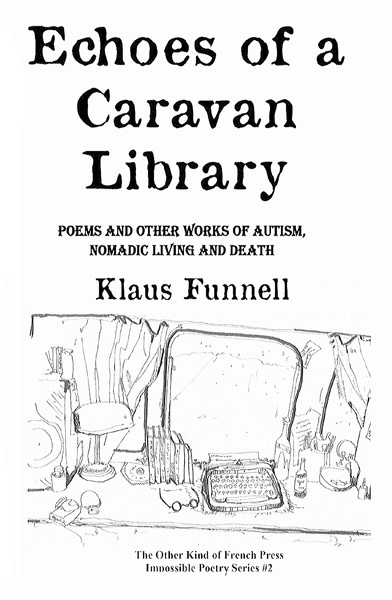The Other Kind of French Press
“Impossible Poetry Series”
The “Impossible Poetry Series” was named because nearly everyone involved with poetry knows that it is virtually an impossible undertaking from a monetary point of view. The poets themselves make almost no money from their work, and don’t expect to. Publishers don’t make anything. The few bookstores that sell poetry only make a pittance; the only poetry that does sell is the classic stuff 50 and more years old, and perhaps going back as far as a thousand or more years – Sappho, anyone? Beowulf (possibly celebrating its millennial birthday in 2025, but who really knows). Homer and Shakespeare continue to do well … now. But neither is getting any royalties nowadays. Eliot does well, and Emily Dickinson. Frost, Keats, Poe. But anybody who isn’t pushing up daisies? Not so much.
It gets worse. In 2015 the Washington Post published an article headlined, “Poetry is going extinct, government data show.” “Some people are still reading it, although that number has been dropping steadily over the past two decades,” business reporter Christopher Ingraham wrote. “In 1992, 17 percent of Americans had read a work of poetry at least once in the past year. [Twenty] years later that number had fallen by more than half, to 6.7 percent… . The numbers come from a study, the national Survey of Public Participation in the Arts… . “Since 2002, the share of poetry-readers has contracted by 45 percent—resulting in the steepest decline in participation in any literary genre,” the study said.
“According to the latest numbers, poetry is less popular than jazz,” Ingraham wrote. “It’s less popular than dance, and only about half as popular as knitting. The only major arts category with a narrower audience than poetry is opera.”
The point is, you can make a better living by becoming an alchemist or a freelance druid. The aim of the Impossible Poetry Series is to find and publish poetry written by people who understand their work probably won’t sell 30 copies, and that’s fine. Is the poetry any good? Who cares? Anyway, maybe that’s in the eye of the beholder. The point is to simply get the work published and “out there” in the world.
And yes, it may just be one step removed from “vanity publishing,” but it isn’t a Do-It-Yourself project. There’s an editor (me) who edits the work, and produces the paperback. At least one person (me) beside the poet and his/her mom has to think the stuff is pretty good and worth a modestly small portion of a dead tree. If the poet makes two bucks from it, the poet is happy, and if I gross two bucks, well so be it. The work is out there, and the poet can give Grandmom a copy she can show off to the girls at the bridge club. And that’s enough. If the poet wants to try to market the book, get it into contests, get it into bookstores, get some recognition, well, go to it and godspeed.


